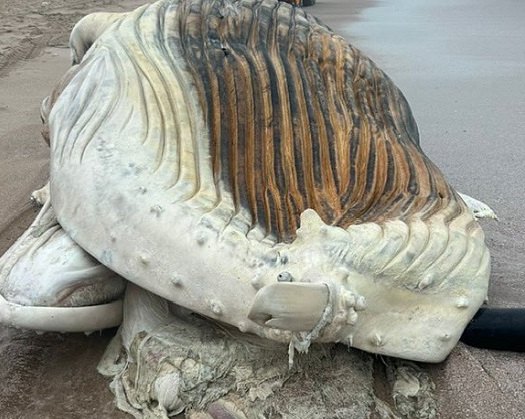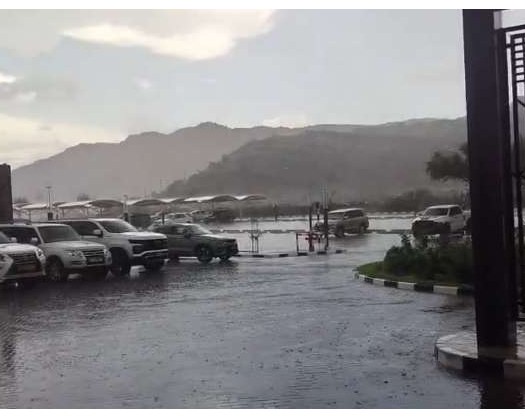The sight of a humpback whale washed off the beach of Al Ashkharah after being trapped in fishing nets left behind by fishermen was heartbreaking.
These sorts of incidents have grown more frequent in high seas as a result of illicit and overfishing, as well as fierce rivalry among boats to capture fish while ignoring environmental rules.
Albino humpback whales are uncommon, with less than one in 10,000 individuals affected.
I am unsure if we have any information or evidence of a white or "albino" humpback whale in our waters. However, the loss of this whale is a major catastrophe.
The loss is more serious because it was discovered to be caused by a pod of uncommon Arabian Sea humpback whales, which are estimated to number just around 100 individuals.
Unlike other humpback whales, the Arabian Sea humpback whales do not move between foraging and reproductive sites; instead, they stay in the Arabian Sea and are categorized as endangered on the International Union for Conservation of Nature (IUCN) Red List. It should be noted that the most well-known all-white humpback whale is known as Migaloo, which was discovered off the eastern coast of Australia in June 1991 and was then considered the most famous humpback whale on the planet.
The whale's popularity has prompted Queensland to amend current laws to safeguard it as well as birds.
We have lost a unique whale, one that is rarely seen in history, and we question if we can protect and conserve the rest of our whales, which are becoming more vulnerable to deadly mishaps on a daily basis.












